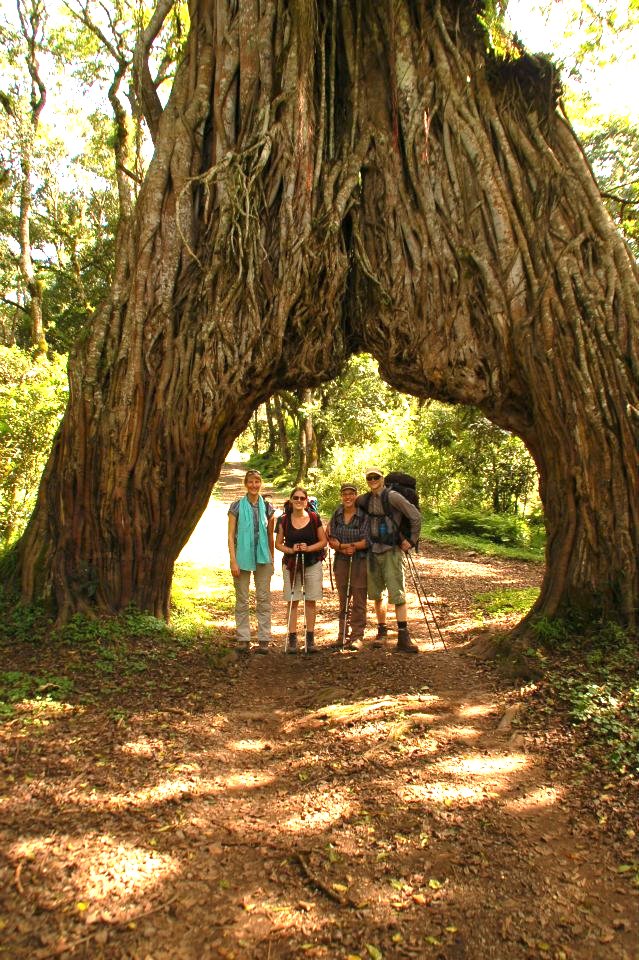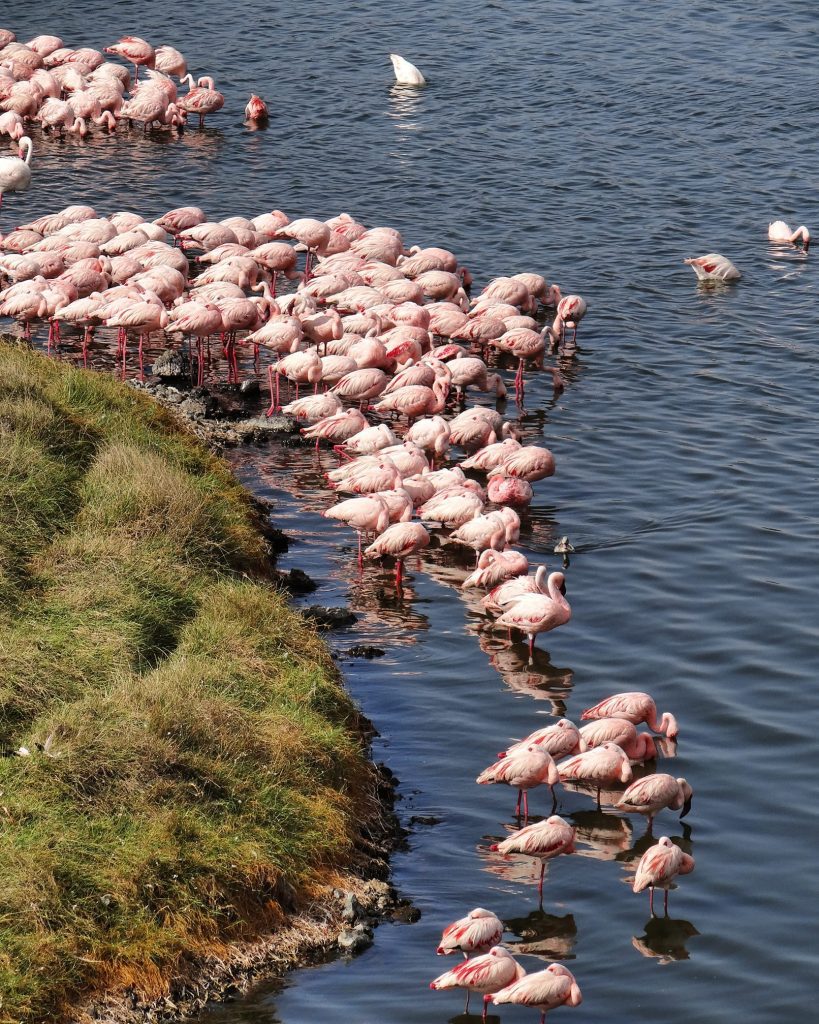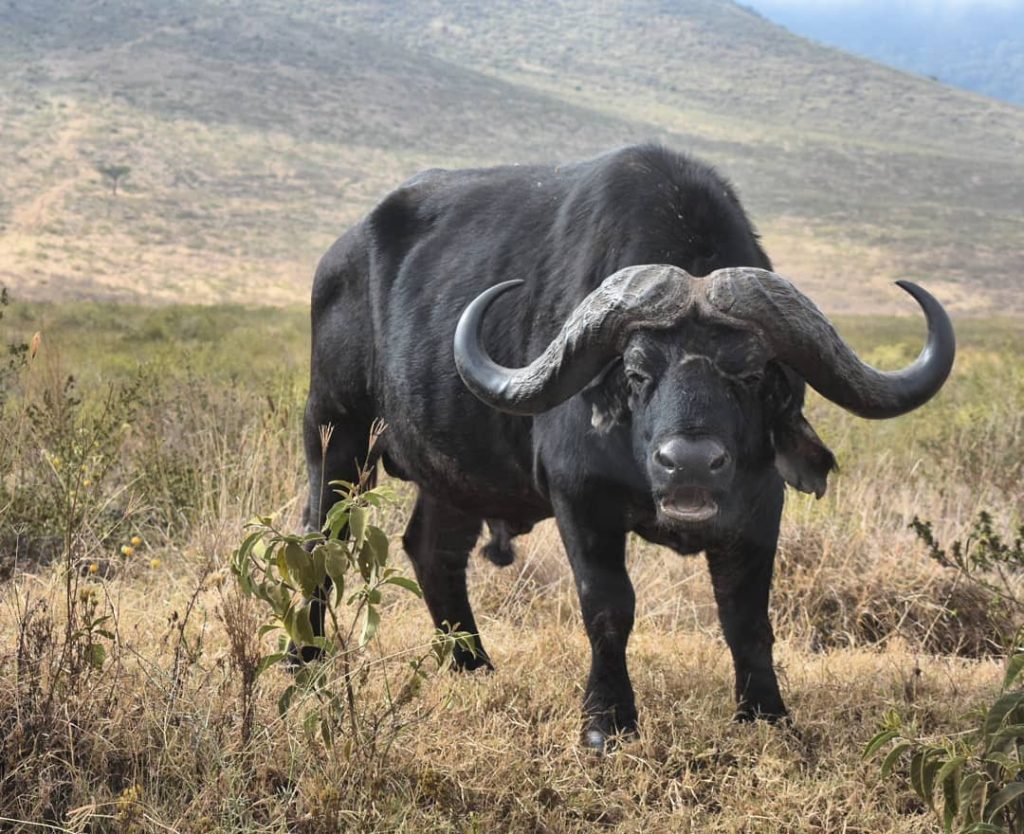Arusha National Park
overview
Situated on the slopes of Mt. Meru, this park is only an hour drive from Arusha. Besides all the wildlife you can spot here other places to visit are the Ngurdoto Crater and the Momela Lakes. The crater has a cross-cut of 3 kilometers. You will have a spectacular view over the crater and if you are lucky you will see the animals walking inside the crater. You are not allowed to go down into the crater, because it is protected.



The Momela Lakes are a great place to spot birds. These seven freshwater lakes are situated in the north-east of the park. In October there is a great chance of seeing European birds who are escaping the cold winter. It is difficult to predict when the big group of flamingo’s land at the lakes every year, but when they do they come with thousands.
This park is also known to be one of the few places in northern Tanzania where you can spot the black- and-white Colobus monkey. Other animals in this park are; giraffes, zebras, baboons, warthogs, elephants and waterbucks. Also leopards, hyena’s and hippos have been spotted here.
About Arusha National Park
Size: 552 sq km 212 sq miles).
Location: Northern Tanzania, northeast of Arusha town.
What To Do?
Forest walks, numerous picnic sites;
Three- or four-day Mt Meru climb – good acclimatisation for Kilimanjaro.
Accommodation
Two lodges, two rest houses, campsites, two mountain huts inside the park; more lodges at USA River outside the park and many hotels and hostels in Arusha town.
Getting There
An easy 40-minute drive from Arusha. Approximately 60 km (35 miles) from Kilimanjaro International Airport. The lakes, forest and Ngurdoto Crater can all be visited in the course of a half-day outing at the beginning or end of an extended northern safari.
NOTE: Mountain Climbing Permits duration time is 12 HOURS.
When To Go?
Dry season (July-October) for large mammals;
Wet season (November-June) for bird watching, the waterfalls and canoeing
Other Related Destinations
Serengeti National Park
- Safari Destinations
Serengeti is the biggest National Park of Tanzania and even listed on the World Heritage List of Unesco.
Ngorongoro Conservation Area
- Safari Destinations
The Ngorongoro Conservation Area (NCA) is actually part of the Serengeti plains to which the Maasai Mara (Kenya) also belongs to.
Tarangire National Park
- Safari Destinations
This park attracts a great amount of animals because it contains an important water source, the Tarangire river.
Lake Manyara National Park
- Safari Destinations
Only one third of this national park is land, the rest is swamp or water. The area has a size of 325km²
Arusha National Park
- Safari Destinations
Situated on the slopes of Mt. Meru, this park is only an hour drive from Arusha. Besides all the wildlife.
Mkomazi National Park
- Safari Destinations
Set beneath the verdant slopes of the spectacular Usambara and Pare Eastern Arc Mountain ranges and overseen
Lake Natron
- Safari Destinations
Lake Natron is situated north of the Ngorongoro Conservation Area and reachable by an adventurous route passing Engaruka village. The area is not as well known as the other nature parks,
Mount Kilimanjaro National Park
- Safari Destinations
Kilimanjaro is the tallest free-standing, snow-capped tropical mountain in the planet. Stories about her resident man-eating spirits have been consigned to the realms of mythology now




